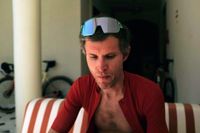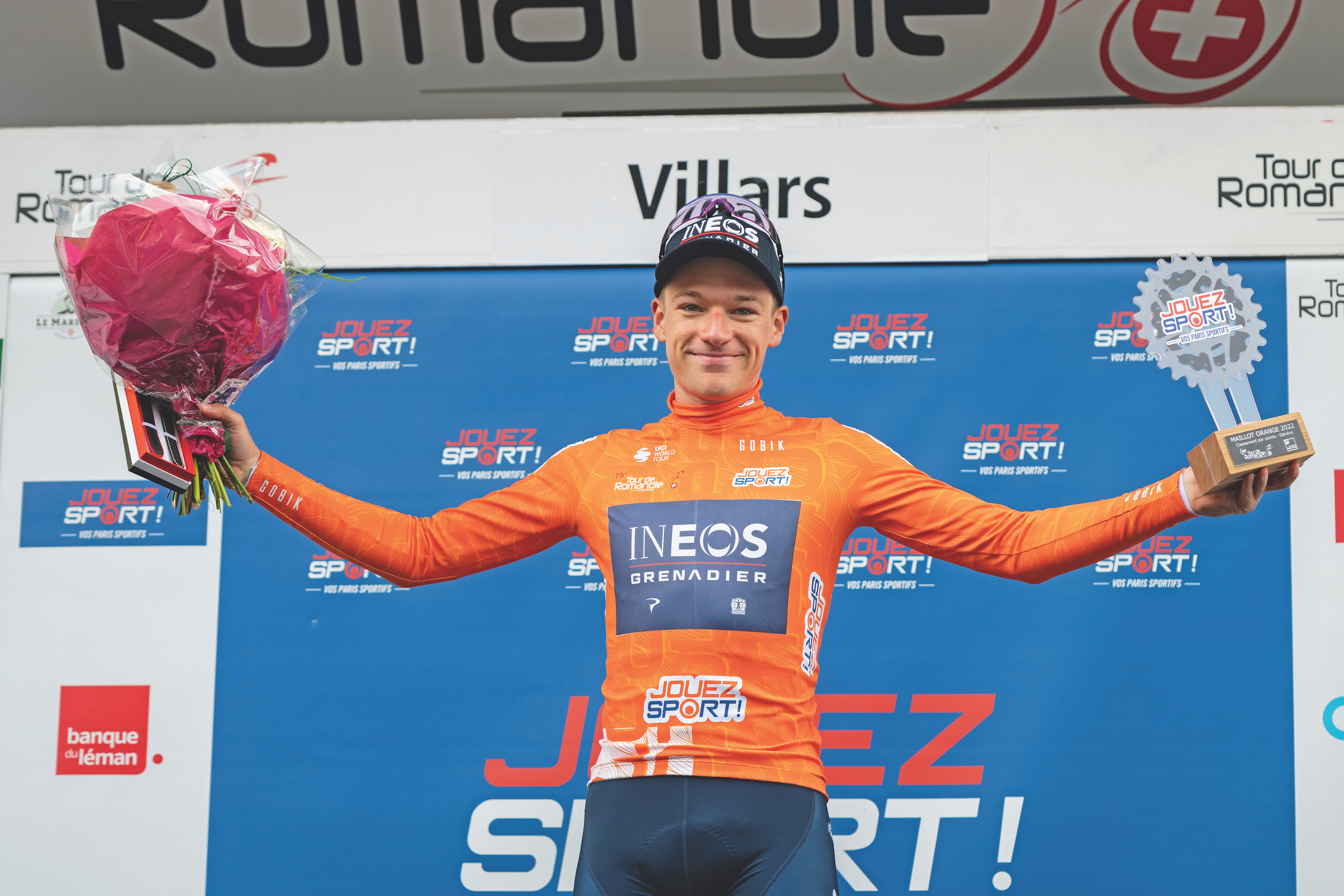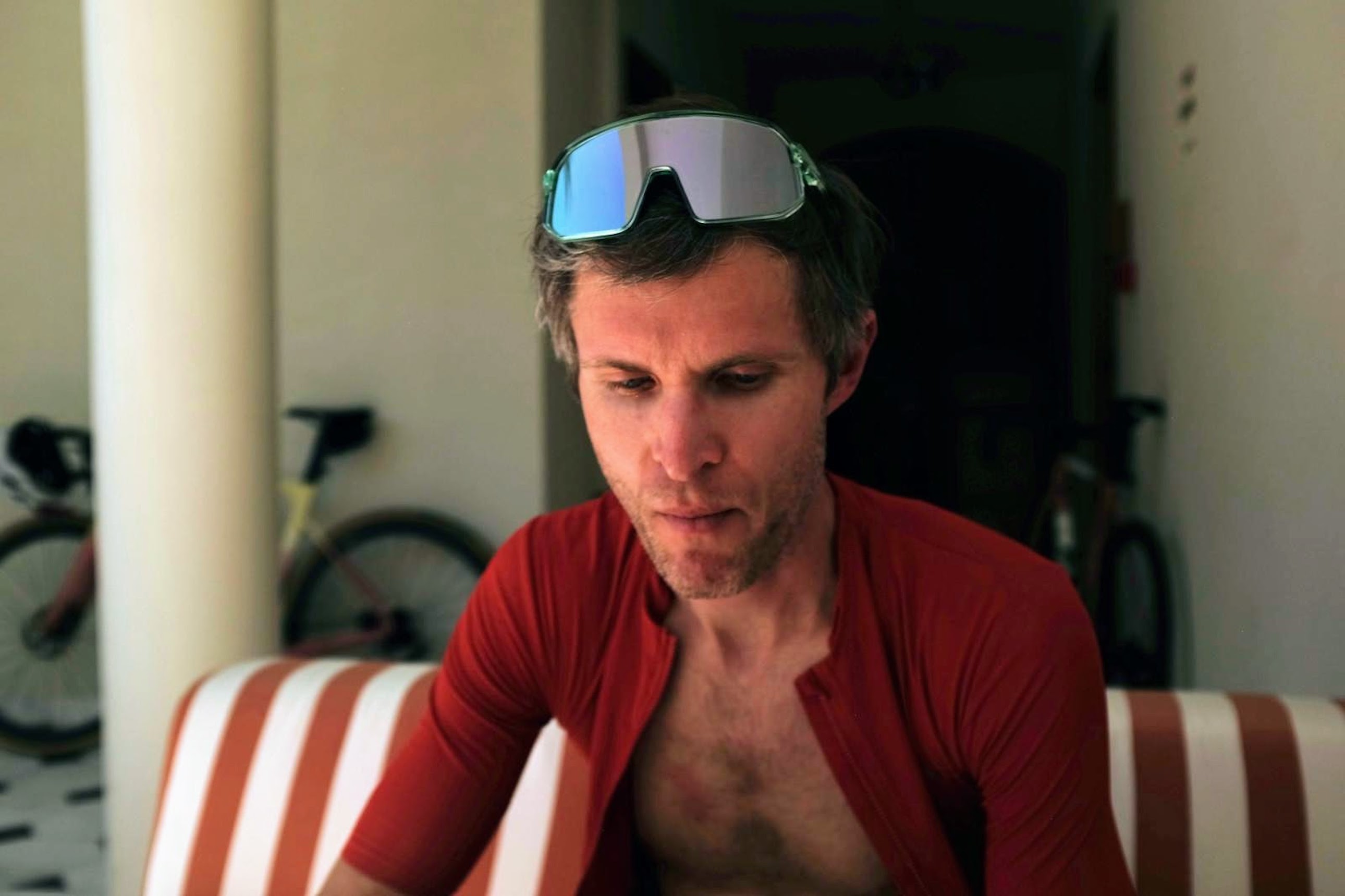'There have been steps up along the way, but nothing unexpected': Ethan Hayter on his rise to top-level success
He recently won his first WorldTour race but it was no surprise, just steady progress, according to the super-talented young Brit


The latest race content, interviews, features, reviews and expert buying guides, direct to your inbox!
You are now subscribed
Your newsletter sign-up was successful
For each article in this long-running WATT WORKS FOR ME series from Cycling Weekly's print edition, we ask a pro rider about their favourite things in training: what has helped them most in getting to where they are today. The aim is to get to the heart of the beliefs and preferences they hold dear when it comes to building form, maximising fitness and ultimately achieving results. For this edition, we speak to Ineos Grenadiers's Ethan Hayter...
You seem to have made huge progress over the past couple of years. What do you put that down to?
Actually I think I’ve progressed at a normal rate, just maybe it’s been more obvious over the past couple of years. If you look at 2017-18 to now, there have been steps up along the way, but nothing completely unexpected – no big shocks.
You had Covid earlier this year. What was it like getting back to full fitness?
It took a while, and I raced quite a lot quite soon afterwards. Once I finally took a break [from racing] and just did a month of training before [the Tour de] Romandie, I was a lot better as a result. Maybe I should have done that sooner, in hindsight, but it’s not a normal illness; it’s hard to completely understand how your body is feeling.
Rider profile: Ethan Hayter
Age: 23
Height: 5ft 10in
The latest race content, interviews, features, reviews and expert buying guides, direct to your inbox!
FTP: Not supplied
Lives: Manchester
Rides for: Ineos Grenadiers
Best results: 1st – Stage 2, Tour de Romandie (2022); 1st – Prologue, Tour de Romandie (2022); 1st GC – Tour of Norway (2021)
Twitter: @ethan_hayter
Instagram: ethanhayter
Has your track ability helped you progress on the road?
I think so, yeah. If you grow up just doing road cycling, for example, you miss out on a lot of learning opportunities. I used to do cyclocross too. Doing other sports, you learn a lot; these things come in useful.
You won the prologue at the Tour de Romandie – do you train specifically for that type of short race effort?
We’d done some, but nothing crazy specifically for that prologue. I’m naturally good at those five- to 10-minute efforts, and I’ve been progressing with time trials – I’ve not been out of the top 10 in a few years – so it wasn’t a big surprise to me [to win the prologue], but I suppose a lot of people only notice the winners of races.
Does having very high short-duration power limit performance over longer distances, do you think?
I don’t know exactly. My longer-duration numbers are at a lower level relative to my shorter-duration numbers, but that’s almost natural having done the track for so long and having not ridden up mountains too often. I’ve room for improvement. Generally, I think pro riders are more versatile now – everyone is getting better at training; it’s part of the whole professionalisation of cycling.
What has been the biggest change to your training since stepping up to WorldTour level?
It’s kind of the same, just on a different level. Nothing has stepped up hugely. Obviously the volume is higher compared to when I was riding track, but I think you just get better over time. You learn with experience when to rest and when to push on in training.
GB coach Stuart Blunt suggested to CW last autumn that you had only recently realised how good you are. Do you think that’s true?
Yeah, it’s weird when you’re surrounded by [successful riders]. Of the nine of us from Stuart’s year, five are now in the WorldTour. When you watch each other on TV, it starts to seem more normal. Why have so many from that cohort made it to the top level? I think part of it was that cycling was getting more popular. The more people get into cycling, the more talented people you end up finding. It’s like Belgium – it’s not a super-talented population, it’s just that more of them try cycling.
How do you monitor your recovery?
In terms of metrics, I don’t really like trackers – I don’t think they’re accurate enough. Generally if you’re dreading doing your efforts, maybe something is up. There is a fine line, obviously, because if you’re just not motivated, then maybe you just need to push on through. But if you’re motivated yet still don’t feel like training, something’s up.
What's your top tip for amateur racers striving to improve?
Work on your bike-handling. There is quite a lot to gain there for most people. Go down to your local crit race – you’ll find your limitations quite quickly!
Quick-fire faves
Pre-race meal? Pasta or porridge
Place to ride? Peak District - weather permitting!
Type of course? Hilly
Way to spend a rest day? Easy ride in the sun, then PlayStation
Cafe stop treat? Pastry
Inspirational cyclist? Ed Clancy
Sport or hobby aside from cycling? PlayStation
Quality in a training partner? Not moaning too much
This article was originally published in the 19 May 2022 print edition of Cycling Weekly magazine. Subscribe online and get the magazine delivered to your door every week.

David Bradford is senior editor of Cycling Weekly's print edition, and has been writing and editing professionally for 20 years. His work has appeared in national newspapers and magazines including the Independent, the Guardian, the Times, the Irish Times, Vice.com and Runner’s World. Alongside his love of cycling, David is a long-distance runner with a marathon personal best of 2hr 28min. Diagnosed with retinitis pigmentosa (RP) in 2006, he also writes personal essays exploring sight loss, place, nature and social history. His essay 'Undertow' was published in the anthology Going to Ground (Little Toller, 2024). Follow on Bluesky: dbfreelance.co.uk